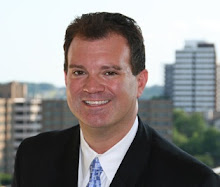Why Academics Are Liberal
I was not sure whether to post this to my personal page or professional page. The two seem so intertwined. Do you feel that way? Especially when politics are involved.
This current presidental contest has muddied my sense of keeping politics out of the classroom. However, as I teach a course on leadership, management and organization, and given that the U.S. Government is predicated on effectiveness in all of the above, I feel it is fair game to discuss in a university setting. Fortunately my graduate students agree and this past Fall semester led to a lively discussion.
Here's the rub: I have seen research over the years that talk about the liberal academic "elite" (like, we can't suck our fat brains through a garden hose?). Somewhere there is the notion that "we" are "brainwashing" people into becoming "liberals." Egad!
It seems that the concern over the few decades about the decline of our educational system has come home to roost. What are they teaching in civics classes these days? In my experience over the years, the citizenry seems to respect less and less the need to achive a modicum of reasonable analysis and debate in the mediated political universe of discourse.
This is unfortunate, and often leeds to accusations by the right regarding the so-called "elitism" of the highly-educated. Let me attempt to shed some light on why a correlation exists between education and liberal thought.
A western liberal education is about the inclusion of people. We see it in the theories of organization that we study. As a professor, I try to bring these principles into the classroom, so that we learn from each other as well as from our academic ancestors.
Inclusiveness and diversity means drawing out all of our collective talents to be the best we can be, not despite our differences, but because of our differences.
We are stronger in our human groupings when we learn not just to tolerate differences, but to proactively respect differences.
Respecting differences means holding a conversation around the whys and hows to build an understanding of the other. One does not have to accept the views of the other, but as cognizant human beings we need to learn to listen with great perspective and humility.
Learning to listen is one of the first, and ongoing steps for becoming an effective leader.

